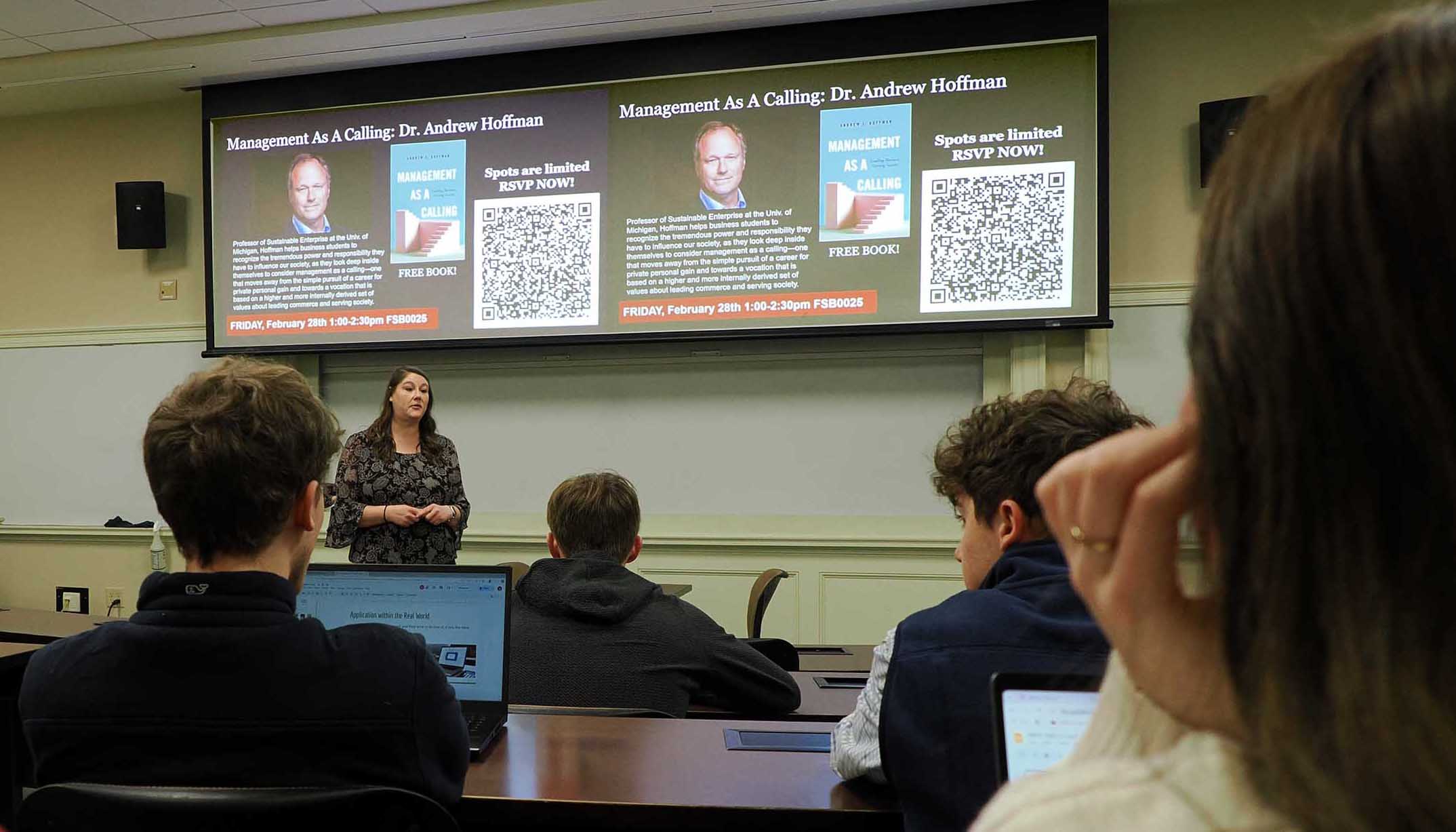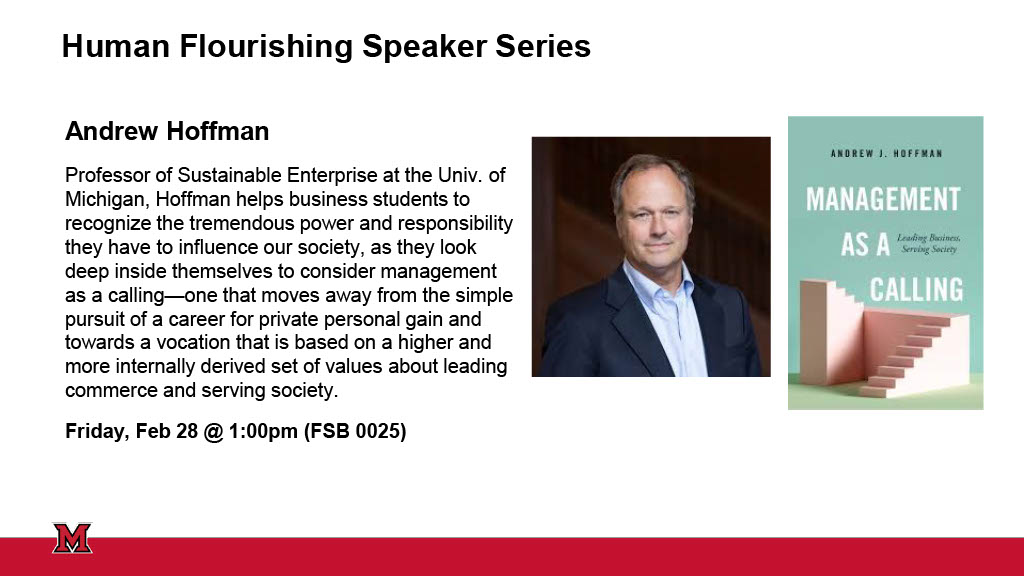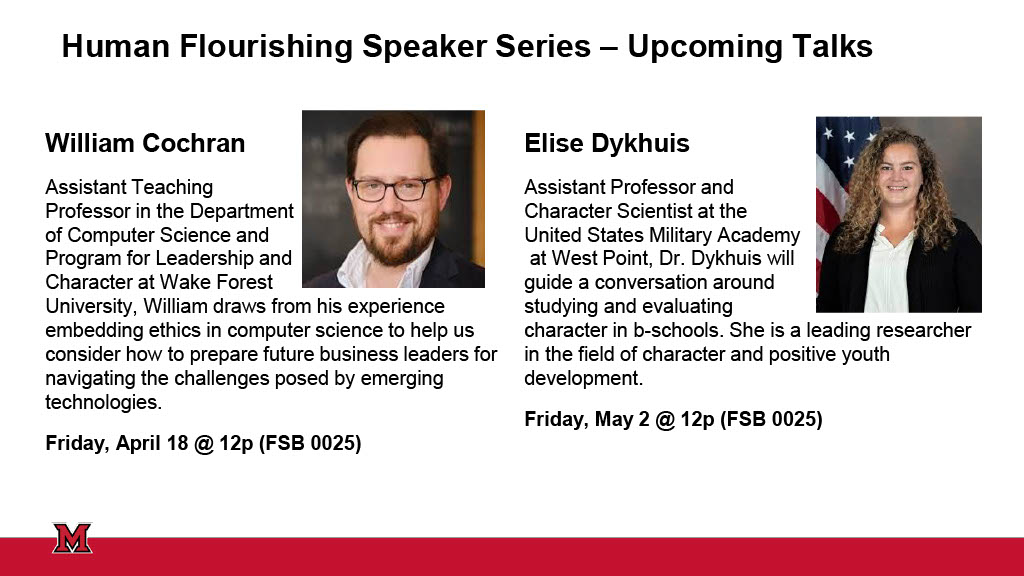Faculty trio working to plant seeds for business students' character growth
A $50,000 grant is being used to see how the Farmer School can help students build character, idenfity their virtues, and flourish as people.

Faculty trio working to plant seeds for business students' character growth
The Farmer School of Business is known for teaching students the skills they need to succeed in business, but professors Kerri Cissna, Rebecca Crews, and Greg Dern are engaged in finding ways to do something bigger: Help students learn how to become better people.
“A lot of schools teach leadership and ethics, but not as much about character,” Cissna said. “We talk so much about economic value in the business school and having a strong return-on-investment for your education and making a lot of money starting out, but we forget to talk about the good that you can do, the impact you can make, and how good that feels.”
“It’s exciting that everyone can put into practice habits of virtue in support of an enduring quest to answer what is the outcome of a flourishing life and what pathways lead to flourishing in life. I’m grateful that I have this opportunity to share in Miami’s vision of student-centered experiences,” Dern said.
The trio received a $50,000 grant last year for a project entitled "The Character of Entrepreneurship: Preparing Tomorrow's Entrepreneurial Leaders." Through classroom work and three on-campus speakers this semester, they hope to show students how to recognize and develop their own character, and perhaps help them discover or refine their purpose in work and in life.
The speakers – Andrew Hoffman, William Cochran, and Elise Dykhuis – will examine the power and responsibility that business leaders can have on society, in small and large ways, while discussing ways that new technologies can influence business and how to measure the impact of teaching about virtues and character in the classroom.
Cissna, Crews, Dern, and others are already experimenting with discussing character and values in the classroom, planting the seeds with first-year students to see what grows as the students move through college.
“You don't measure how creative somebody is. That's just very subjective. You measure the process they took to get to a creative mean. And that's the same thing with character. We can't judge you on how great or pure your character is,” Crews said. “But how are you practicing the strategies and the processes to get to habits of virtue so that you can develop good character?”
“I know I can't really change their character in 15 weeks. I'm just measuring if I can change their disposition towards character,” Cissna said. “Do they believe character is something you can change? What’s their mindset and motivations towards character? Are they here to make money and do good in business, or do they want to do good in business and make an impact on the world?”
And helping students become character-driven leaders, they said, is not a means to an end, but a means to what’s next.
“In a world that becomes increasingly more economic-driven, we want to see people who are leading businesses that care about other people, and we want to help them do that,” Crews said. “It gives us meaning to be able to help our students be the best version of themselves that they can be, and that means providing service to others.”
“We're here because we want to influence these young lives for something beyond just skills. That’s the whole point of higher education, really,” Cissna said. “How will character help them see the meaning and the impact they're making, to see the broader calling to make a difference in the world?”
“It feels like, as a teacher, this gives me something to grab onto, to be able to give back to them, so that they can be happy, and that's really all I would want as a teacher, is to be able to empower my students to just live as whoever they want to be,” Crews said. “And I think this gives us the avenue to do that.”

